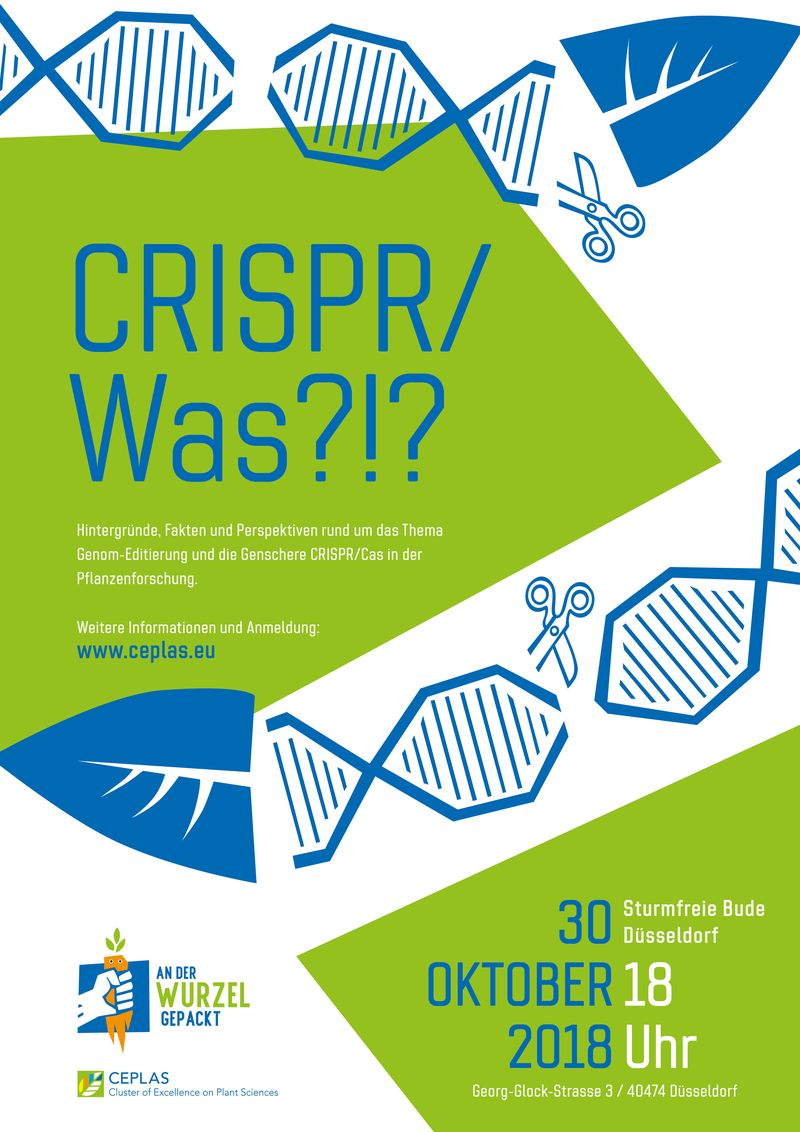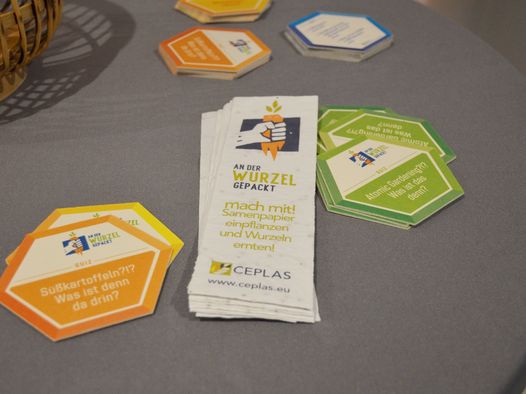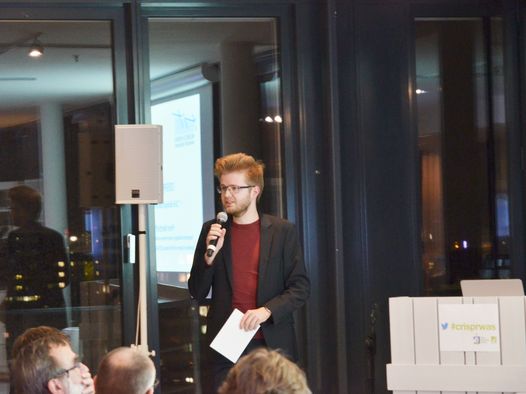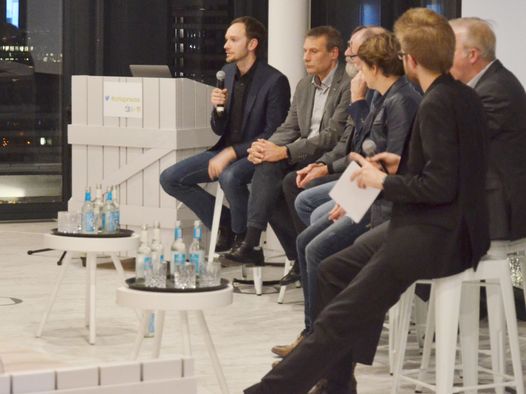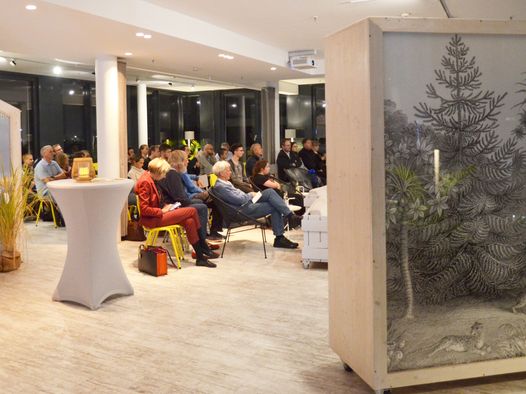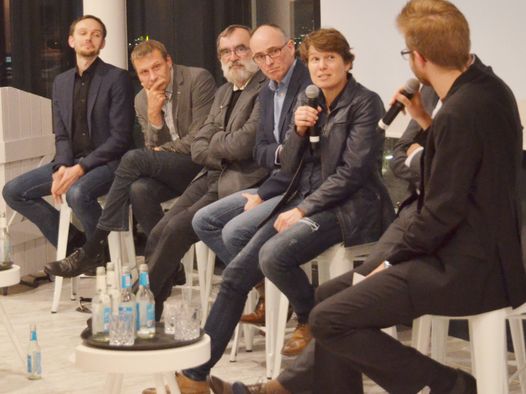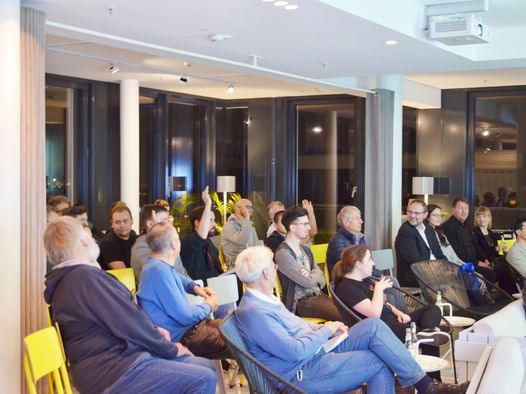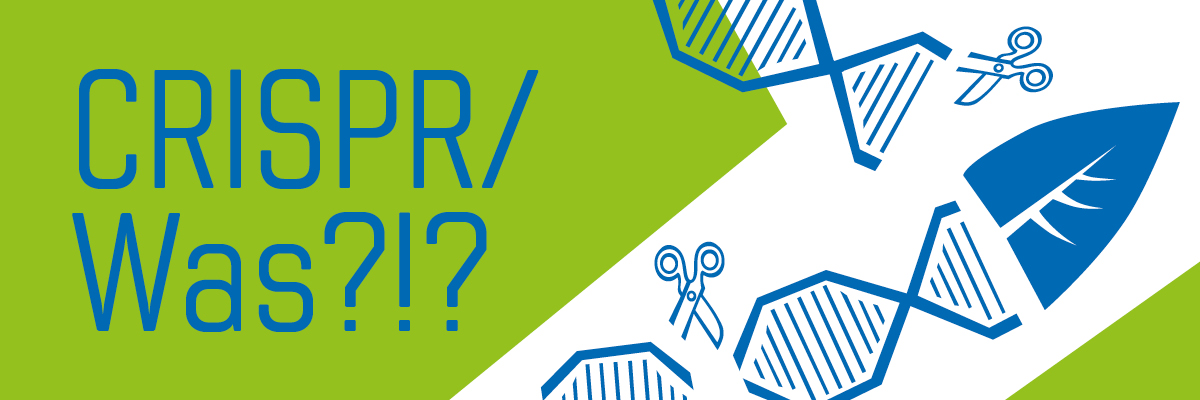
CRISPR/What?!? - Lively and constructive discussion about the chances and perspectives of genome editing
On October 30, 2018, the first discussion round in the frame of the new CEPLAS event series “An der Wurzel gepackt” (tackle the root) with the title “CRISPR/What?!?” took place in Düsseldorf. CEPLAS invited six representatives of science, industry and politics to inform about and discuss the perspectives, opportunities and risks of genome editing in plants. The event was moderated by Tim Neumann, Hochschulradio Düsseldorf.
The evening started with short keynote talks in which each speaker had the opportunity for a brief introduction their opinion on genome editing.
Prof. Dr. Peter Westhoff, Vice Rector for Research and Transfer and head of the Institute for Plant Developmental Biology at the Heinrich Heine University Düsseldorf started with explaining the origin of the Cas9 gene scissors and how genome editing with CRISPR works in plants.
Afterwards Dr. Jon Falk, Managing Director of SAATEN-UNION BIOTEC GmbH, talked about the importance of the CRISPR technology for small and medium-sized plant breeding companies and emphasized that the complex regulatory requirements for CRISPR excludes them from the market.
Norwich Rüße, spokesman for agriculture, nature, environment, animal and consumer protection for the BÜNDNIS 90/DIE GRÜNEN in the NRW state parliament and farmer himself, gave an overview about genome editing in the political debate.
Dr. Johannes Fritsch, Office of the Joint Committee on the Handling of Safety-Relevant Research at the National Academy of Sciences Leopoldina, first introduced the Leopoldina and its task to consult politics independent of economic or political interests. He focused on Leopoldina's recommendations for the regulation of genome-edited plants, which advocates product-based assessments and the possibility to perform field trials.
Susanne Günther, graduated philosopher, farmer and agricultural blogger (schillipaeppa.net), made clear that she would grow genome-edited varieties, if, for example, this would reduce the use of pesticides. She also emphasized that the general acceptance of the use of genetic engineering in plants was significantly dependent on the real benefit for the consumer.
Finally, Prof. Dr. Andreas Weber, from the Institute of Biochemistry of Plants at the Heinrich Heine University of Düsseldorf and CEPLAS speaker, focused on the application of CRISPR in basic research and explained the opportunities that CRISPR offers in this context.
Afterwards the discussion panel was opened for the audience and an open and objective discussion started. Topics discussed ranged from questions on how to regulate the import of genome-edited plants from countries that do not regulate this technology, or how a product-based regulation of genome-edited plants might be realized.

